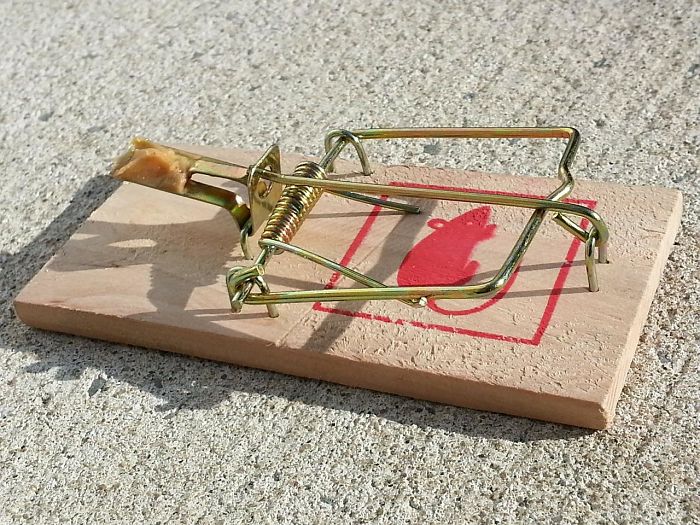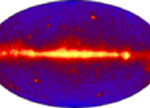
Traps and grey areas abound when one spouse files bankruptcy during or after a divorce. Inattention by the non-filing spouse can result in the bankruptcy discharge of spousal claims that might actually be nondischargeable.
One of those traps involves the differing treatment in bankruptcy of debts to a former spouse incurred in the course of a divorce (Bankruptcy Code §523(a)15)) and debts for breach of fiduciary duty or willful and malicious injury (§523(a)(4) and (6).
Some bankruptcy propositions are clear:
- Support claims are not dischargeable in any chapter of bankruptcy.
- Debts to a spouse incurred in the course of a divorce are non dischargeable in a Chapter 7. But they are dischargeable in Chapter 13.
- Breach of fiduciary and willful or malicious injury may be nondischargeable in either chapter.
But, trap for the unwary, claims for breach of fiduciary duty or willful & malicious injury are non dischargeable only if the creditor-spouse brings a timely adversary proceeding in the bankruptcy case and successfully prosecutes the case. §523(c) and §1328(a).
So, we have conflicting policies at work: (a)(15) represents the desire of the current iteration of the Code to categorically protect the monetary claims of spouses and former spouses. Whereas, (a)(4) and (6) represent the presumption in favor of dischargeability unless the creditor objects and prevails in that objection.
So, which policy prevails when the claims at issue in the divorce include actions that may fall under §523(a)(4)&(6) as well?
Tort claim or divorce claim
The case of Chaudry illustrates the problem and the consequences of getting it wrong.
The spouses filed for divorce in 2014. State law required that marital tort claims be included in the divorce action, which Wife did. While the divorce was pending, Husband filed a Chapter 7 bankruptcy in 2016, properly including Wife as a creditor. Wife failed to file a timely objection to the discharge of the tort claim as required by §523(c)(1) and Husband’s discharge was duly entered.
Some months later, Wife asked the bankruptcy court to determine that her assault and battery claim against Debtor-Husband was a debt “incurred… in the course of a divorce” for which no objection to discharge was required in order for the claim to survive the bankruptcy. Held: Wife’s claim existed independently of the divorce, and thus the claim fell under (a)(6), and was not protected from discharge by (a)(15).
Claims addressed in final decree
The bankruptcy outcome of interspousal claims was different in Peery, an Arizona bankruptcy court case where a final divorce decree had been entered prior to Husband’s bankruptcy. The obligation of Husband to Wife for a business loan arose before marriage, so it wasn’t even incurred during marriage, much less as a result of the divorce.
But the signal fact was that the decree specifically included provisions concerning the award of the note to Wife and the obligation of Debtor-Husband to not only pay the note, but to secure payment with life insurance in favor of Wife.
The treatment of the debt in a final decree brought the debt within the ambit of a debt incurred in the course of a divorce. Held: nondischargeable.
Breach of fiduciary duty to spouse
And so we arrive at the issue of the nature of the duties of one spouse to another when the alleged wrongdoer files bankruptcy.
Bankruptcy Code 523(a)(4) makes non dischargeable debts incurred by breach of fiduciary duty. The existence of a fiduciary relationship is determined under federal law, which requires the existence of an express or technical trust, excluding from the bankruptcy definition trusts created by virtue of wrongdoing.
In Mele, after separation but before the divorce was adjudicated, Husband withdrew the balance of the couple’s 401(k) account and spent some $240,000 on himself, while paying nothing for child support. After days of trial, the family court found a fiduciary relationship existed under WA common law and entered a property settlement judgment in favor of Wife for over $100,000.
Husband then filed Chapter 13, where non support debts arising in the course of a divorce are dischargeable. Wife timely filed a challenge to the dischargeability of the debt owed to her as a breach of fiduciary duty.
The bankruptcy court, looking to Lam, found a common law fiduciary relationship between spouses and held the debt nonchargeable. That holding didn’t survive appeal to the BAP.
Focusing on the requirement of the Bankruptcy Code that a trust, for purposes of §523(a)(4), must be an express trust or a technical trust, the BAP could find neither in the state law of Washington. By contrast, the California statutory law governing Lam does create a fiduciary relationship between spouses. Family Code 721. In the absence of a trust relationship, there could be no fiduciary duty for bankruptcy purposes, and Husband skated.
Characterization isn’t either/or
Hearkening back to the question of how the non filing spouse’s claim is characterized, the bankruptcy court in Lusk addressed competing claims as to the nature of a money judgment in favor of the former spouse, arising from the debtor’s misappropriation of funds awarded to wife in the divorce. Was the judgment a dischargeable non-support debt incurred in the divorce or was it a breach of fiduciary duty non dischargeable in Chapter 13.
The family court judgment dissolving the Lusks’ marriage incorporated a marital settlement agreement which granted Wife a fractional interest in Husband’s employment-based retirement plans. Decades later, Husband received all of the pension plan as a lump sum, and withdrew all of the 401(k), spending much of it, without any payment of Wife’s share of the accounts.
The family court entered an order, quantifying Wife’s interest in the funds and ordering Husband to pay the misappropriated funds and Wife’s attorneys fees incurred to obtain the order. Husband and his current wife then filed Chapter 13, claiming that the obligation to Wife was a non support debt arising out of their long-ago divorce, and therefore dischargeable. Wife’s timely objection to the discharge of the debt asserted that the obligation was, in fact, nondischargeable as a defalcation by a fiduciary.
The bankruptcy court found that the treatment of the division of the retirement assets in the divorce did not preclude the later money judgment from characterization as a breach of fiduciary duty.
The court then addressed whether the wrongdoer have the requisite state of mind required by the Supreme Court’s decision in Bullock to make the breach non dischargeable?
Bullock held that a defalcation by a trustee was only non dischargeable if the fiduciary had a “culpable state of mind … involving knowledge of, or gross recklessness in respect to, the improper nature of the relevant fiduciary behavior.” Bullock , 569 U.S. at 269.
Based on the testimony at trial, the Lusk court found that the ex spouse had the required knowledge that his actions were wrong. Thus, the defalcation debt was non dischargeable despite its inclusion in a marital property settlement.
Avoiding discharge of spousal claims
The inescapable lesson of these cases involving claims between spouses or former spouses is that close analysis of the nature of the claims of the non filing spouse is required to preserve claims when one spouse files bankruptcy.
The deadline for contesting dischargeability of breach of fiduciary duty and willful injury claims is typically only 60 days from the date set for the first meeting of creditors. Preservation of claims arising from culpable conduct requires timely action to challenge the discharge of a particular debt.
More
How bankruptcy treats support claims
When family law and bankruptcy collide







